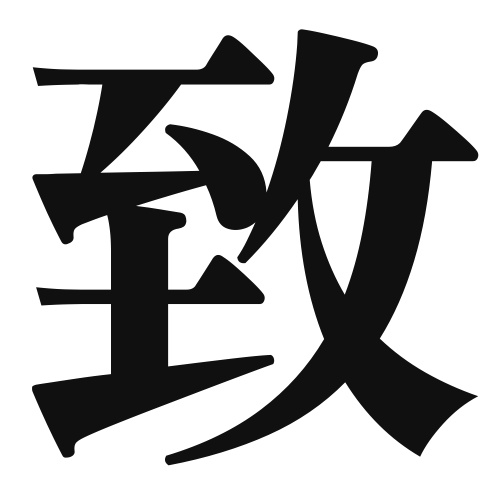1. Overview of Meaning
The kanji “致” (chi) generally means “to cause,” “to bring about,” or “to achieve.” It conveys the idea of making something happen or reaching a certain state or result.
2. Formation and Radical
Formation of the Kanji: The kanji “致” is a phonetic-ideographic character (形声文字). It combines the meaning of “to cause” with a phonetic component that suggests its pronunciation.
Radical: The radical for “致” is “至” (shi), which means “to arrive” or “to reach.” This radical contributes to the overall meaning of achieving or reaching a result.
3. Examples of Usage
Common Words and Phrases: Some frequently used words that include “致” are:
- 致命 (ちめい, chimei) – “fatal”
- 致す (いたす, itasu) – “to do” (humble form)
Example Sentences in Daily Conversation:
- この問題を解決するために、何か致す必要があります。
- (We need to do something to resolve this issue.)
4. Synonyms and Antonyms
Similar Kanji: A similar kanji is “引” (in), which means “to pull” or “to draw.” While both kanji involve the idea of causing something, “引” emphasizes the action of drawing or pulling, whereas “致” focuses on achieving a result.
Antonyms: An antonym for “致” could be “妨” (ぼう, bou), which means “to hinder” or “to obstruct.” This contrasts with the idea of causing or achieving something.
5. Cultural and Historical Background
Relation to Japanese Culture: The kanji “致” is often used in formal contexts, such as in business or official documents, reflecting the importance of achieving results in Japanese culture.
Proverbs and Idioms: One common phrase is “致知” (ちち, chichi), which means “to achieve knowledge.” This reflects the value placed on knowledge and learning in Japanese society.
